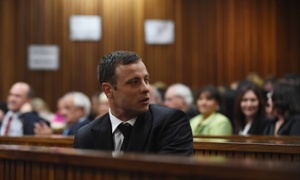
A strike by BBC News staff that could have hit coverage of the Scottish independence referendum next week has been averted after talks with director general Tony Hall.
The broadcasting unions have called off their industrial action after BBC News executives agreed to some of their demands, for a suspension of compulsory redundancies and external hirings until the end of March 2015, at a meeting on Thursday afternoon.
Thursday’s agreement followed on from Hall’s meeting on Wednesday with representatives of the National Union of Journalists and technicians’ union Bectu, where an outline framework designed to avert the strike was worked out.
Earlier this month staff voted for industrial action including possible strike action over plans to cut more than 400 posts after management declined to give undertakings that there would be no compulsory redundancies and a freeze on bringing in staff from rivals.
The external hirings freeze is likely to help boost morale. Many in the newsroom have reacted angrily following a string of hirings from outside the organisation over the past year, since former Times editor James Harding was appointed director of news and current affairs.
Over the summer there was outrage in the BBC newsroom after the corporation continued to hire staff from rival ITV News – including rising star Lucy Manning – despite BBC journalists and managers facing job losses.
After staff voted for industrial action at the beginning of September, BBC News bosses began working out contingency plans. This week members of the NUJ began working to rule.
There has already been a high level of interest in applying for voluntary redundancy, around 470 volunteers, according to Bectu.
The BBC has also agreed to discuss what those left behind will do to cope with the workload once the 415 posts have been closed, whether it means changing or cutting some programmes.
Bectu deputy general secretary Luke Crawley said: “The fact that the BBC has agreed a moratorium on compulsory redundancies in unprecedented. We do see that as a victory.”
He said the moratorium “will give use the chance to look in detail at the proposals and avoid compulsory redundancies and also manage the changes and workload”.
Michelle Stanistreet, NUJ general secretary said: “We’re pleased that common sense has prevailed and that a sensible solution has been negotiated following talks with Tony Hall. NUJ members are deeply concerned that the proposed job cuts will have a devastating impact on their ability to produce quality content.
“That NUJ members were prepared to take strike action is a measure of that concern, and a reflection of how low morale at the corporation has fallen ... A moratorium on compulsory redundancies and a proper process to deal with assessments of workloads is good news for NUJ members, and good news for the viewing public.”
A BBC spokeswoman said: “Following constructive discussions with the unions we’re pleased that they’ve decided not to serve notice to strike. We hope that we will now be able to resolve this dispute.”
• To contact the MediaGuardian news desk email media@theguardian.com or phone 020 3353 3857. For all other inquiries please call the main Guardian switchboard on 020 3353 2000. If you are writing a comment for publication, please mark clearly “for publication”.
• To get the latest media news to your desktop or mobile, follow MediaGuardian on Twitter and Facebook.














